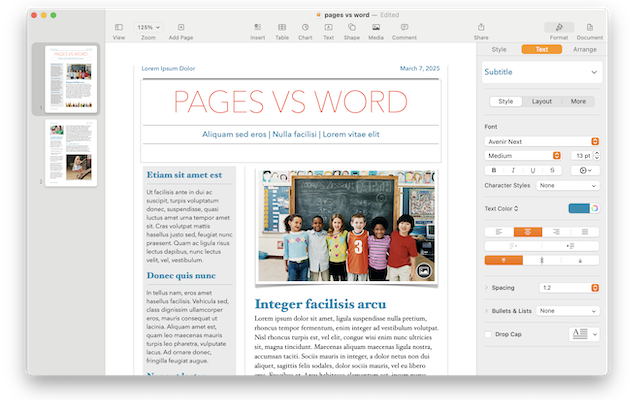Check out our Mac hardware deals of the week with discounts of up to 52% off!
When it comes to the best word processing software for Mac, two big players always stand out: Apple’s Pages and Microsoft’s Word.
In 2025, both have evolved significantly, but they cater to different types of users and needs.
Whether you’re a student, a business professional, a creative writer, or someone just looking for a reliable way to create documents, choosing the right word processor can make a big difference to your productivity.
Here we’ll take a closer look at the differences between the two to help you decide which one is the best fit for your needs starting with an overview of how they compare head-to-head.
| Feature | Apple Pages | Microsoft Word |
|---|---|---|
| Price | Free (included with macOS) | Paid (Microsoft 365 subscription or one-time purchase) |
| User Interface | Minimalist, macOS-optimized | Feature-rich but more complex |
| File Format | .pages (native), can export to .docx, PDF, etc. | .docx (native), supports various formats |
| Cloud Sync | iCloud Drive | OneDrive, Dropbox, iCloud |
| Collaboration | Real-time collaboration via iCloud | Real-time collaboration via OneDrive |
| Compatibility | Best for Apple ecosystem, limited Windows compatibility | Cross-platform (Mac, Windows, Web) |
| Templates & Design | Elegant, media-rich templates | Extensive templates with more customization options |
| Advanced Formatting | Basic to moderate text and layout tools | More advanced formatting, styles, and layout control |
| Track Changes & Comments | Yes, but simpler | Full-featured with more revision tools |
| Mail Merge | No built-in support | Yes, using Excel or Outlook |
| Equation Editor | Basic equation support | Advanced equation and formula editor |
| Macros & Automation | No macro support | Supports VBA macros and automation |
| Performance | Lightweight and fast | Can be slower, especially on large documents |
| Offline Use | Yes | Yes |
| Best For | Basic to intermediate users, those that mainly work on Apple devices | Advanced users, professional and business use in Microsoft 365 |
Here we’ll look at some of these factors in more detail.
Table of Contents
1. Ease of Use and Interface
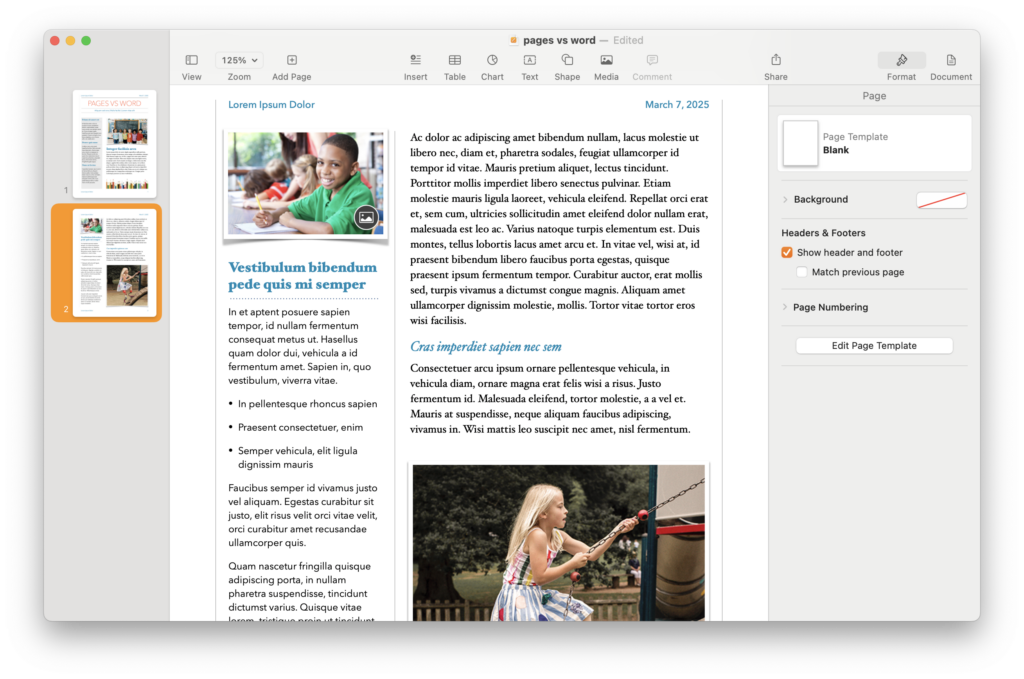
Both Pages and Word have taken significant steps to simplify their interfaces in recent years.
- Pages: Known for its clean, minimalist design, Pages is all about simplicity. The interface feels lighter compared to Word and is more visually in tune with macOS. If you’re already familiar with macOS, you’ll feel right at home in Pages, where everything from the toolbar to document navigation feels intuitive. Pages also leans towards producing more creative documents, making it a great alternative to Microsoft Publisher for Mac.
- Word: While Word has a slightly busier interface and is clearly built for business use with Microsoft Office (now Microsoft 365) integration. In 2025, Microsoft has continued to refine Word’s user experience with new features like Contextual Smart Menus, which change based on the task you’re working on. However, for a Mac user who may not need Word’s full suite of features, it can feel overwhelming and bloated. Word’s range of tools is impressive, but the learning curve is definitely steeper than Pages.
Verdict: For users who want something straightforward and integrated with macOS, Pages wins easily in terms of ease of use and familiarity. However, for power users who need advanced tools, Word offers far more features.
2. Collaboration and Cloud Integration
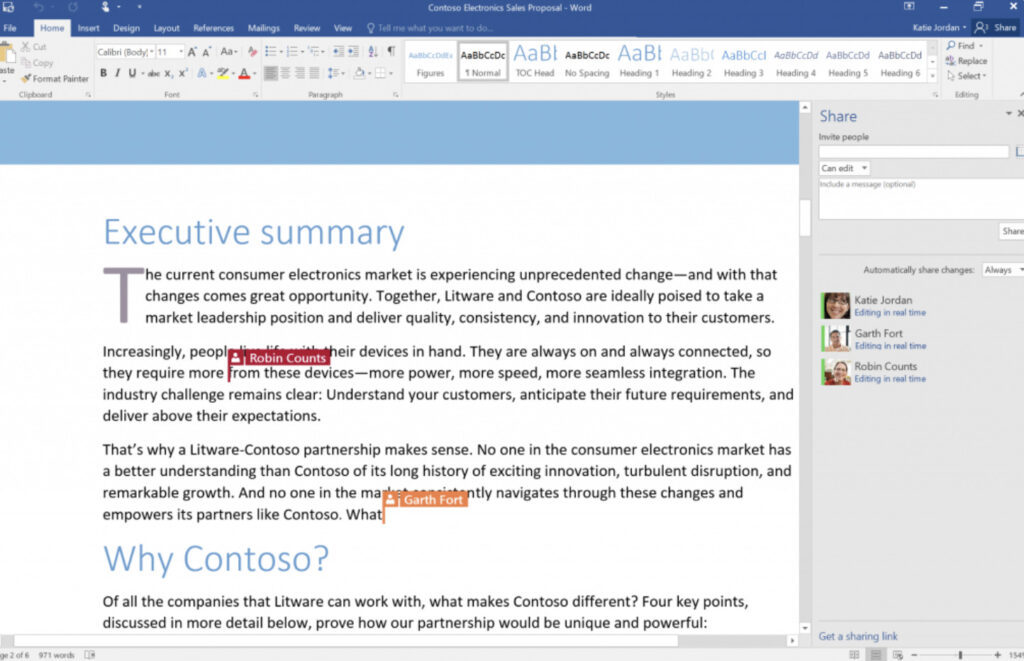
Both Pages and Word can be used for collaboration, but they differ in their approach.
- Pages: Since Pages is a native Apple product, it integrates with iCloud. This means that whether you’re working on a Mac, iPad, or iPhone, your documents are automatically synced and easily accessible. Sharing and collaborating is smooth if you’re using Apple products, but sharing with non-Apple users can be a bit trickier. Although Apple has improved real-time collaboration in Pages, it still not as cross-platform accessible as Microsoft Word.
- Word: Microsoft Word has the edge here thanks to its cross-platform availability. With Microsoft 365 integration, you can access Word documents on virtually any device – Mac, Windows, or mobile. Collaboration in Word is also more polished, especially when working with teams who might not be using Apple’s products. Microsoft’s real-time collaboration feature is faster and more reliable than Pages. You can also co-author documents in real-time with multiple users, and Word’s extensive commenting and revision tools make it far better suited for professional collaboration.
Verdict: If you primarily collaborate with other Apple users, Pages is a great choice. But for cross-platform collaboration or working with large teams, Word is better.
3. Features and Functionality
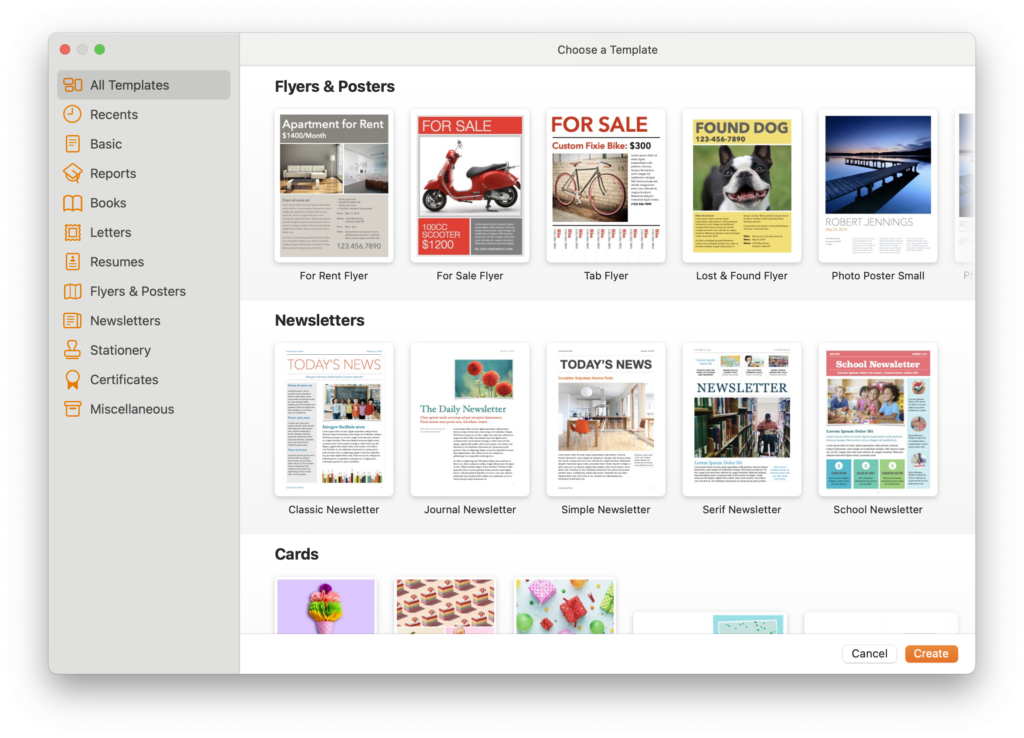
The biggest difference between Pages and Word lies in the sheer amount of functionality and depth.
- Pages: Pages has evolved into more than just a word processor, it’s become a great tool for desktop publishing on a Mac. It’s perfect for users who want to create visual projects like brochures, posters, or invitations, as it offers drag-and-drop tools that are easy to use for non-designers. However, it doesn’t match Word when it comes to sheer word processing power. The tools for managing large, complex documents, such as academic papers or reports, are more limited in Pages.
- Word: Microsoft Word remains the better choice for heavy-duty document creation. It offers a wide array of tools for writing, editing, and formatting, making it ideal for users who need to work on complex projects like research papers, legal documents, or multi-section reports.
With features like advanced formatting styles, track changes, and reference management, Word is designed for more technical work than Pages.
Verdict: Pages is better for simple, visually driven documents, while Word remains more powerful for complex document creation and detailed formatting needs.
4. Compatibility and File Formats
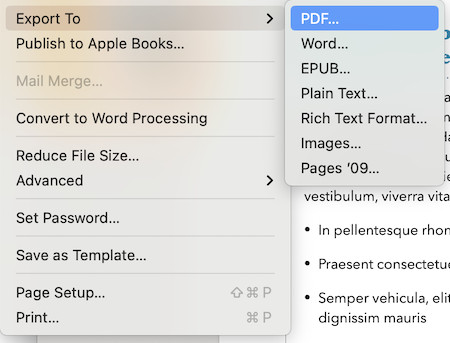
One of the most common problems for Mac users is document compatibility with other platforms and formats.
- Pages: While Pages supports exporting to common formats like PDF and Word (.docx), there can be formatting issues when converting files, especially if you’re sharing them with users who don’t have Apple devices. While this has improved over the years, it’s still something to be aware of. Pages’ proprietary format (.pages) can also cause problems if you’re not working exclusively with Apple devices.
- Word: Word’s format is by far the most widely used in most professional and educational settings. The .docx format is universally recognized, and documents created in Word are much less likely to suffer from formatting issues when shared with non-Mac users. Word also boasts full support for Apple’s M-series chips, meaning it runs smoothly on the latest Mac hardware with no compatibility concerns.
Verdict: For file compatibility, especially in mixed environments, Word is the more reliable choice. Pages is fine when used with Apple products but can cause issues outside of it.
5. Pricing and Availability
Of course, cost is always a major factor when choosing software, and this is where Pages has arguably the biggest advantage over Word.
- Pages: Pages is completely free for all Mac users, and it comes pre-installed on all new Macs. There are no hidden costs or subscription fees, making it the perfect option for Mac users on a budget or those who need a solid word processor without any additional costs.
- Word: In 2025, Word is still part of the Microsoft 365 subscription service, which starts at around $99.99 per year for personal use. While it comes with a host of other apps like Excel and PowerPoint, the ongoing subscription is a downside for casual users who don’t need the full suite.
Verdict: For those on a budget or that don’t like to be tied into subscriptions Pages, offers great value as a free app, while Word’s subscription model is better suited for those who need more advanced features across multiple apps.
Conclusion
The choice between using Pages and Microsoft Word on your Mac comes down to your specific needs and budget.
- Choose Pages if: You want a clean, easy-to-use word processor for creating simple documents or visually attractive projects, and you mainly work with Apple devices. Pages is perfect for users who love Apple’s design ethos and want a reliable, free tool that’s well integrated with macOS.
- Choose Word if: You need advanced features, cross-platform compatibility, or work on complex, long documents frequently. Word is the go-to for professionals, academics, and anyone who needs the most powerful word processor available, even if it comes with a subscription cost. It’s also the best choice for those that require compatiblity and integration with other Microsoft 365 apps.


